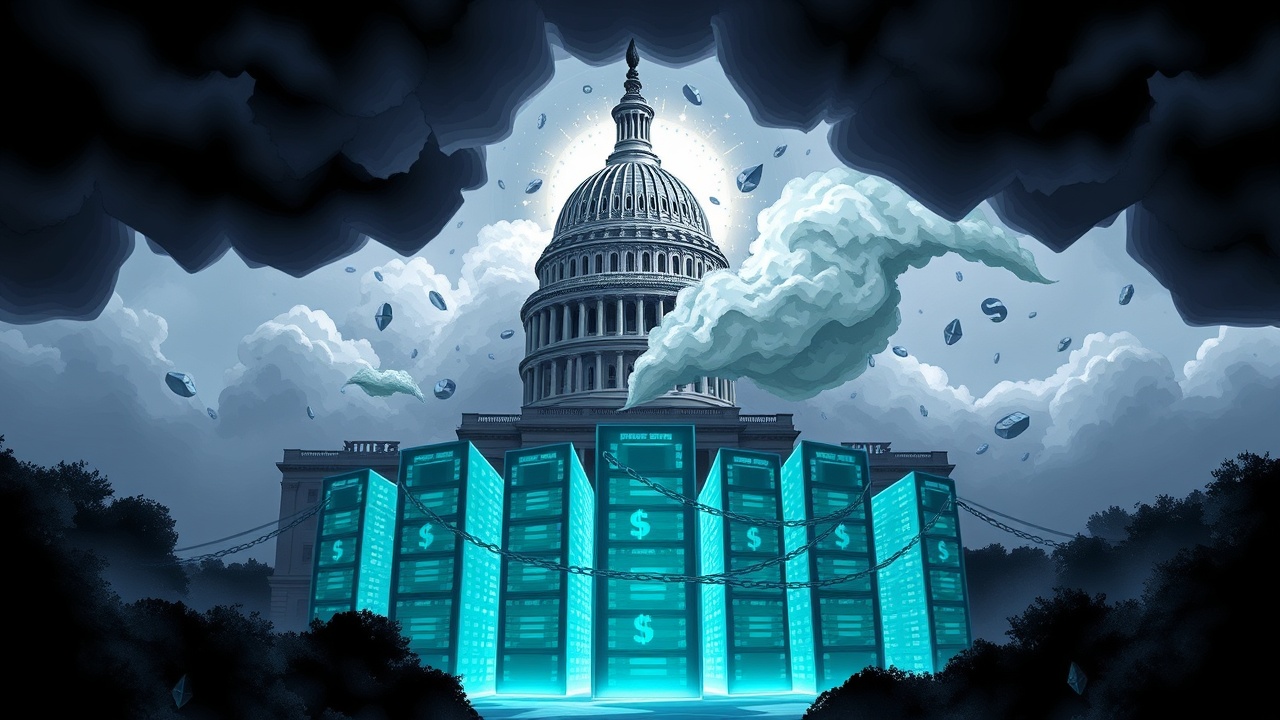Recent Senate Developments on Data Center Regulations
Recent developments in the U.S. Senate indicate a potential shift in the regulatory landscape for data centers utilized by blockchain and artificial intelligence operations. As reported by Bloomberg on April 11, a new draft bill led by Democratic Senators Sheldon Whitehouse and John Fetterman could impose financial penalties on data centers and crypto mining facilities that exceed federal emissions standards.
The Clean Cloud Act
This initiative, referred to as the Clean Cloud Act, aims to mitigate the environmental impact of the surging energy demand from these industries while preventing increased energy costs for consumers.
The proposed legislation directs the Environmental Protection Agency (EPA) to establish emissions performance benchmarks specifically for data centers and crypto mining sites equipped with over 100 kilowatts of installed IT capacity. These benchmarks will be informed by the emissions intensity of regional electrical grids and require an annual emissions reduction of 11%.
Notably, penalties for emissions surpassing the designated limits would begin at $20 per ton of CO2 equivalent, with increases tied to inflation and an additional annual fee of $10.
Environmental Impact and Industry Response
According to insights from the Senate Committee on Environment and Public Works, the energy consumption of data centers is predicted to account for as much as 12% of the nation’s total power demand by 2028. Meanwhile, research from Morgan Stanley forecasts that the growth of data centers may result in approximately 2.5 billion metric tons of CO2 emissions globally by the decade’s conclusion, presenting a significant challenge in achieving climate goals.
Matthew Sigel, head of research at VanEck, criticized the initiative as targeting Bitcoin miners and similar enterprises in a misguided effort to address energy consumption.
The current bill also indicates potential conflicts with previous U.S. policies on artificial intelligence safety, enacted under former President Biden and subsequently undone by Donald Trump, who aims to position the country as a leading force in AI and cryptocurrency.
Industry Transition and Market Challenges
Furthermore, the legislative proposals arrive at a time when Bitcoin mining companies, including Galaxy, CoreScientific, and Terawulf, are transitioning to provide high-performance computing (HPC) resources for AI applications. The cryptocurrency market has faced challenges in 2025 due to plummeting prices, prompting miners to diversify their operations by entering the AI data center sector, as noted by Coin Metrics, which reported that earnings for miners began to stabilize in early 2025.
However, this positive outlook may be threatened by ongoing international trade tensions, which could complicate operations for miners and other blockchain participants. Nicholas Roberts-Huntley, CEO of Concrete & Glow Finance, emphasized that aggressive trade policies could hinder the infrastructure that supports cryptocurrencies, further impacting the market amidst global uncertainty.




